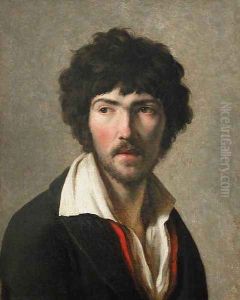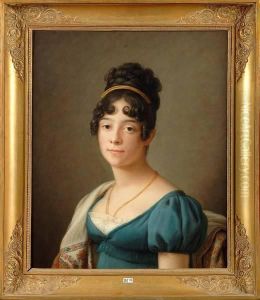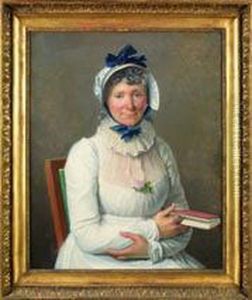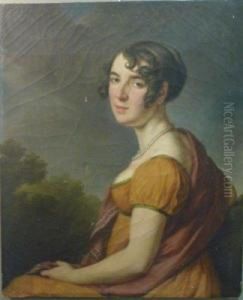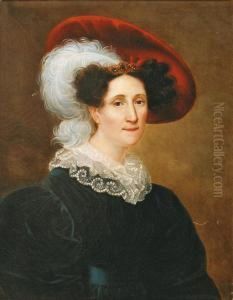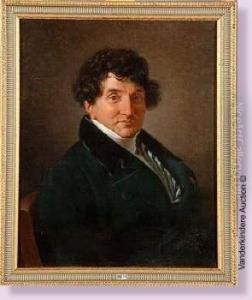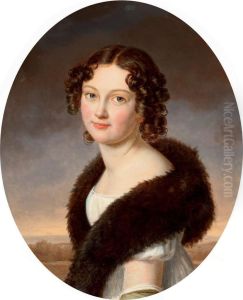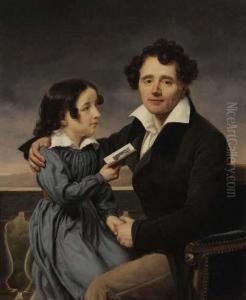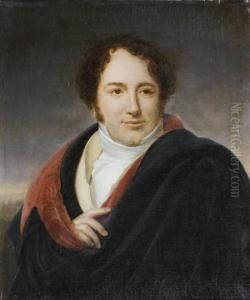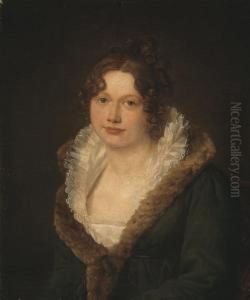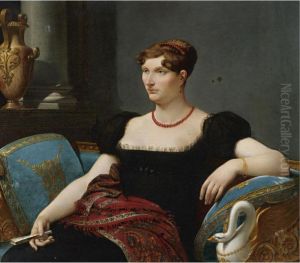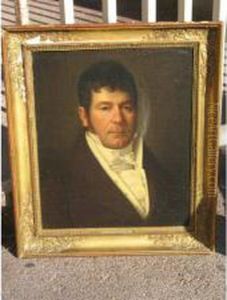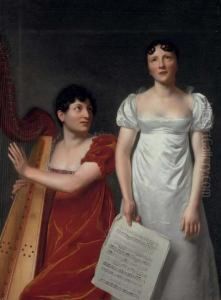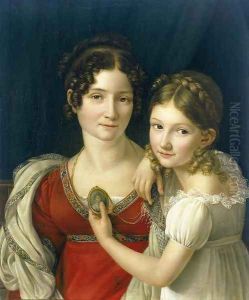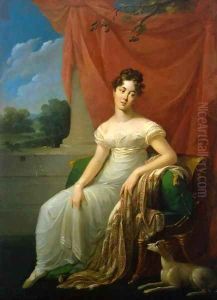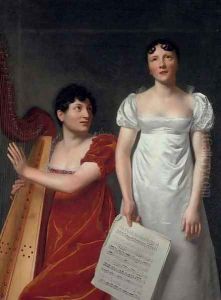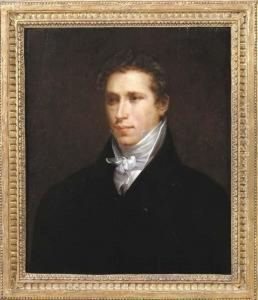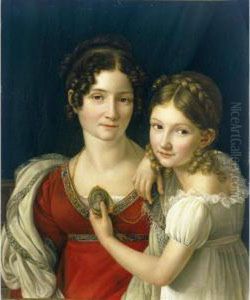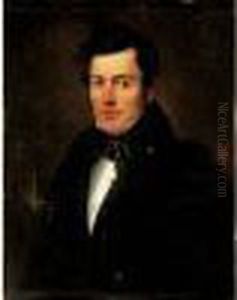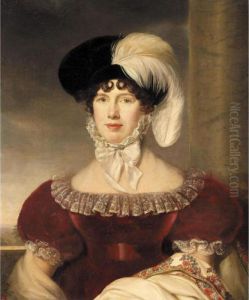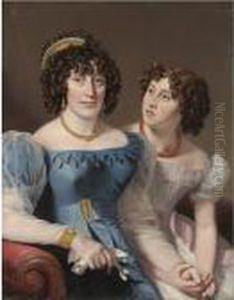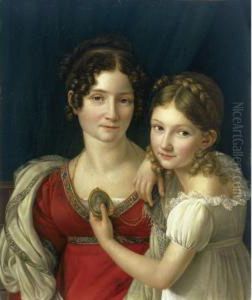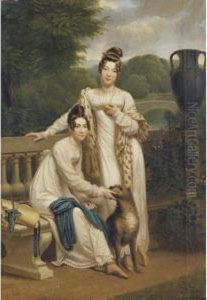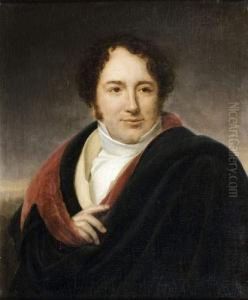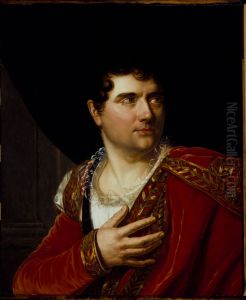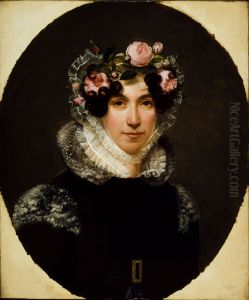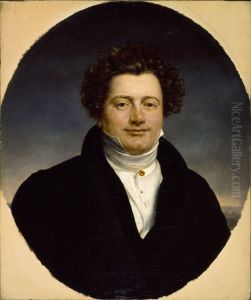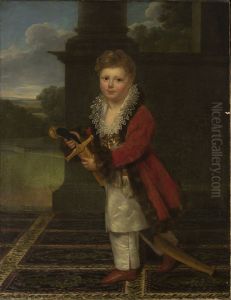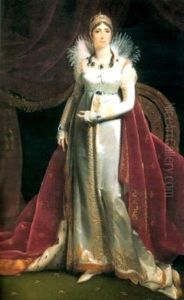Henri-Francois Riesener Paintings
Henri-François Riesener was a prominent French painter, known for his portraits in the Neoclassical style. Born on February 25, 1767, in Paris, he was the son of the famous cabinetmaker Jean-Henri Riesener, who was renowned for his work during the reign of Louis XVI. Henri-François showed an early talent for art and was subsequently trained by his father before studying painting under the guidance of the esteemed artist François-André Vincent.
Riesener quickly gained recognition for his remarkable skill in capturing the likeness and character of his subjects. He exhibited at the Paris Salon for the first time in 1791, and his works were well received. He became known for his portrait paintings, which often depicted members of French high society, intellectuals, and political figures of his time.
During his career, Riesener enjoyed the patronage of the French elite, including Napoleon's family. His portraits are characterized by their refined elegance and attention to detail, reflecting the influence of Neoclassicism, which emphasized clarity, order, and harmony. Despite the turbulent political environment of the French Revolution and the Napoleonic Wars, Riesener maintained a successful career.
Riesener's legacy is also tied to his family connections in the art world. He married the daughter of the painter Elisabeth Vigée Le Brun, one of the most famous female artists of the 18th century. Their son, Léon Riesener, also became a painter, ensuring the continuation of the artistic tradition in the family.
Henri-François Riesener passed away on January 5, 1828, in Paris. Today, his works are held in various museums and collections around the world, testament to his skill and the enduring appeal of his elegant portraits.
